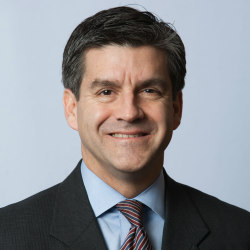This article was written by Anthony Hennen and featured on Red Alert Politics on September 4, 2015
Chicago Mayor Rahm Emanuel will call for the largest tax increase in modern Chicago history, spurred by large budget shortfalls and basic service funding.
In total, property-tax increases, garbage-collection fees, and various fees on tobacco, Uber, and soft drinks will make a $750 million burden for Chicago taxpayers, according to the Illinois Policy Institute.
In spite of the massive tax increases, they won’t address the budget deficit for Chicago Public Schools. In a separate deal, Emanuel wants a property tax to raise $170 million for CPS along with additional state funding, but that situation isn’t a solidified proposal yet.
As Ted Dabrowski writes for IPI, it’s not clear that the tax hikes would improve Chicago’s long-term finances:
First, these tax hikes, massive as they are, are not nearly enough to cover the full amount of Chicago’s debts. Without real pension and spending reforms, still more property-tax hikes will be needed.
And second, these tax hikes will only serve to lower Chicago’s tax base, as thousands of residents start to flee the city. This will accelerate the out-migration of residents that has been going on for decades and has been a boon for Chicago’s collar counties and Lake County, Indiana.
These tax and fee increases aren’t the first under Emanuel. The way he did them, however, were through “series of smaller tax, fee and fine increases that together resulted in the equivalent of a 60 percent increase in city property taxes for the average homeowner,” according to the Chicago Tribune.
Pension shortfalls have loomed over Chicago for several years, but tax increases and cuts in city services have not adequately addressed the funding issues.
The Tribune notes that pension payments next year will increase by $538 million for the city unless Illinois Governor Bruce Rauner signs a bill that allows Chicago to gradually phase in the payments.
For years, Chicago has been recognized as the worst city for its lack of funding for pension obligations. It’s not alone, however. Cities need to address their funding shortfalls before they reach the level of Chicago, where taxpayers will be forced to pay more in taxes, take cuts in basic services, or both.
